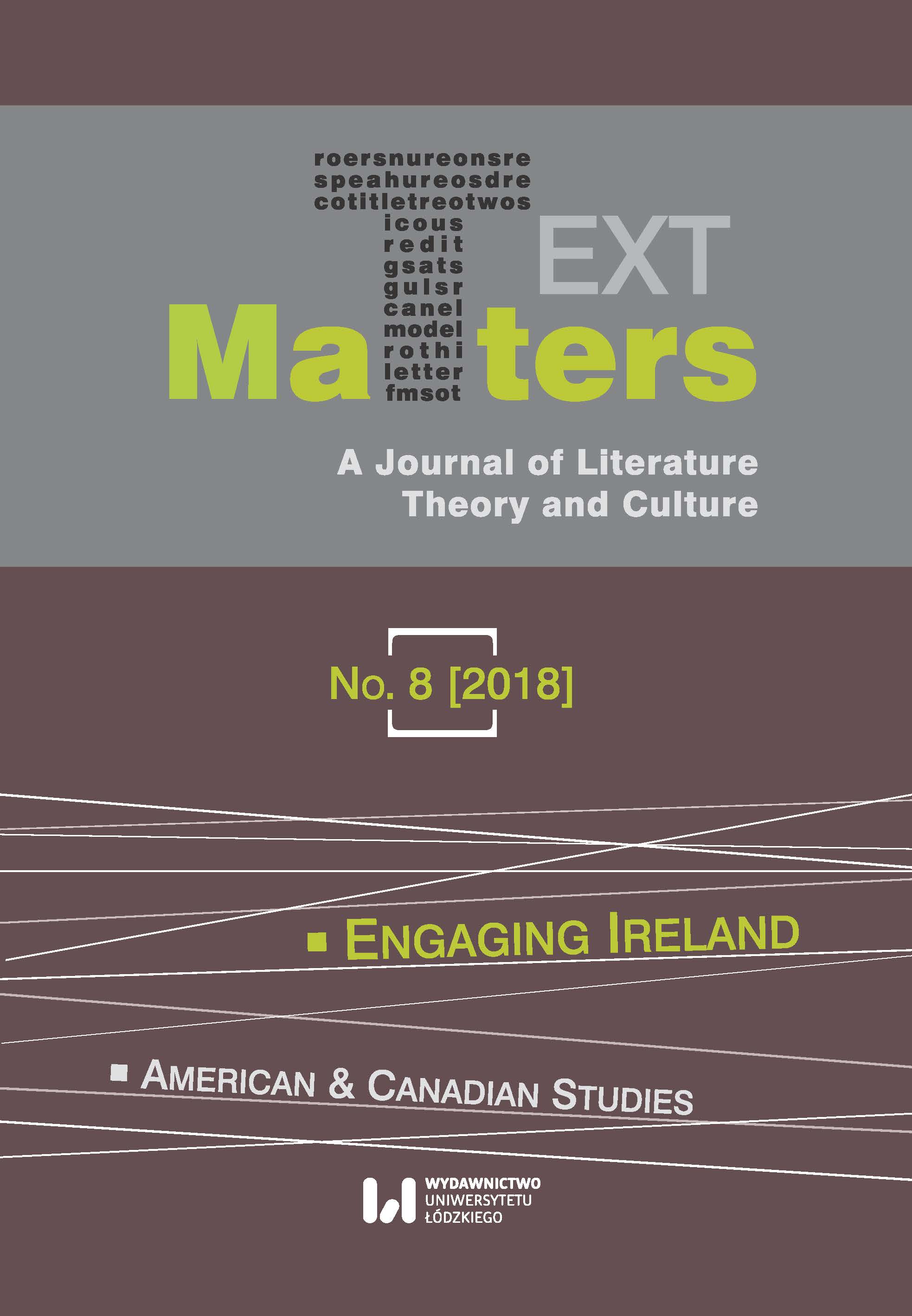“Soldier Dolls, Little Adulteresses, Poor Scapegoats, Betraying Sisters and Perfect Meat”: The Gender of the Early Phase of the Troubles and the Politics of Punishments against Women in Contemporary Irish Poetry
“Soldier Dolls, Little Adulteresses, Poor Scapegoats, Betraying Sisters and Perfect Meat”: The Gender of the Early Phase of the Troubles and the Politics of Punishments against Women in Contemporary Irish Poetry
Author(s): Katarzyna OstalskaSubject(s): Studies of Literature, Theory of Literature
Published by: Wydawnictwo Uniwersytetu Łódzkiego
Keywords: contemporary Irish poetry; gender discourse; the Troubles; Northern Ireland
Summary/Abstract: This paper examines the literary representation of the beginnings of the Northern Irish Troubles with regard to a gender variable (women’s roles and functions ascribed to them, mostly punitively, by men ), in the selected poems by Heaney, Durcan, Boland, Meehan and Morrissey. The reading of Heaney’s “Punishment” will attempt to focus not solely on the poem’s repeatedly criticized misogyny but on analyzing it in a broader, historical context of the North’s conflict. In Durcan’s case, his prominent nationalist descent or his declared contempt for any form of paramilitary terrorism (including the IRA) do not seem to prevent him entirely from immortalizing female victims of the Troubles. Boland’s attitude seems the most unequivocal: the clear aversion to the language of death and rendering Irish women’s experiences (and children’s) in this discourse. The article concludes with analysis of Meehan’s “Southern” guilt for the situation of Catholics in the North with the simultaneous critique of perpetrated violence and Morrissey’s complicated standpoint: atheist/neutral/Protestant/communist and her striving for the impossible impartiality in a war-ridden and politically divided country. Trying to avoid systemic victimization of Irish women, the paper intends to analyze the historical and political circumstances which made them more susceptible to various forms of attacks at the beginnings of the Troubles, as reflected in the titular labels.
Journal: Text Matters: A Journal of Literature, Theory and Culture
- Issue Year: 2018
- Issue No: 8
- Page Range: 84-106
- Page Count: 23
- Language: English

